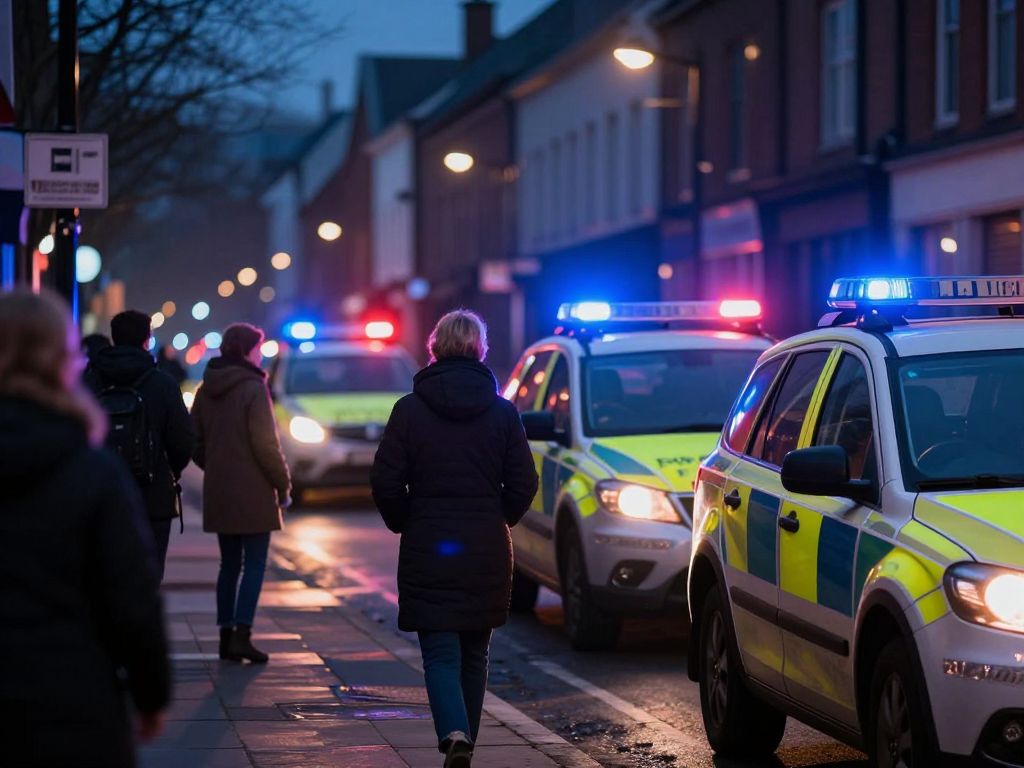News Summary
Private investigators in Massachusetts are experiencing significant challenges as the state police begin denying license renewal applications. This policy change particularly affects former police officers transitioning to private investigation roles, raising concerns about its impact on ongoing criminal cases and the livelihoods of many professionals. Joe DeSimone, a retired sergeant detective, found his renewal application denied due to new regulations. As appeals are planned, the broader implications on public safety and investigative support for families are under scrutiny.
Cambridge, Massachusetts — Private investigators in Massachusetts are facing significant challenges as the state police have begun denying license renewal applications, a move that threatens to jeopardize ongoing criminal cases and the livelihoods of many professionals in the field. The situation has raised concerns among long-time private investigators, who argue that this policy disproportionately impacts former police officers seeking to transition into private investigation roles.
Joe DeSimone, a retired sergeant detective from Cambridge, has been a licensed private investigator for nearly a decade, specializing in criminal defense and primarily serving indigent clients. Recently, DeSimone submitted his application for a license renewal, expecting to continue his work seamlessly. However, he was met with a surprise when the Massachusetts State Police informed him that he was disqualified due to a new regulation stating that applicants must not currently hold certification from the Peace Officer Standards and Training (POST) Commission.
This alteration in the state’s licensing criteria effectively disqualifies DeSimone and potentially hundreds of other former law enforcement officers who have elected to work in the private sector. DeSimone argues that the POST certification is related to police oversight and should not affect his qualifications as a private investigator. He received a denial letter indicating that his current duties — conducting police details in Cambridge — contributed to his ineligibility, despite this criterion not being explicitly mentioned in existing laws prior to the policy change.
The legal framework surrounding private investigator certification in Massachusetts is complex. According to Massachusetts General Law, individuals holding POST certification and who exercise police powers are prohibited from becoming independently certified private investigators. However, the law allows these individuals to work as employees under a licensed private investigator. DeSimone’s attorney, Domenic Paolino, questions the legality and timing of the state police’s decision, emphasizing that DeSimone’s extensive qualifications should meet the necessary standards for renewal.
DeSimone intends to appeal the State Police’s decision, asserting that it is not within the police’s jurisdiction to dictate who qualifies as a private investigator. Other professionals in the field whose applications have been similarly denied are also considering appeals or potential legal action as a result of this policy change.
This denial of licenses is occurring against the backdrop of the ongoing investigation into the disappearance of Brittany Tee, a case that has persistently drawn attention since her last known sighting on January 10, 2023, in Brookfield, Massachusetts. Despite the limited media coverage, private investigators have been sought to assist with this case after the family expressed frustration over a perceived lack of communication from authorities. Private Investigations for the Missing, a nonprofit organization, has taken Brittany Tee’s case due to its age and potential for solvability, currently handling over 30 similar cases across the country.
Lou Barry, a case manager from Private Investigations for the Missing, stated that their objective is to work collaboratively with law enforcement while providing assistance and hope to the families of missing persons. This scenario exemplifies the crucial role private investigators play in such sensitive and urgent matters, underscoring the potential impact that licensing changes may have on public safety and the support available to affected families.
The ramifications of the Massachusetts State Police’s new policy extend beyond mere administrative changes; they pose a tangible risk to pending cases and may force many private investigators out of business, diminishing the resources available for those in need of investigative support. As the situation unfolds, it remains to be seen how the appeals process will address these challenges and what future implications may arise for private investigators in the state.
Deeper Dive: News & Info About This Topic
- CBS News: Private Investigators Face License Renewal Challenges
- Boston Herald: Massachusetts Private Investigators Seek RMV Records Access
- Spectrum News1: Update on Brittany Tee Case Involving Private Investigators
- Telegram: Brittany Tee Search and Private Investigators
- Forward: Private Investigators Hired by Boston Federation
- Wikipedia: Private Investigator
- Google Search: Private Investigator Licensing Massachusetts
- Encyclopedia Britannica: Private Investigator
- Google News: Private Investigators Massachusetts

Author: STAFF HERE BOSTON WRITER
The BOSTON STAFF WRITER represents the experienced team at HEREBoston.com, your go-to source for actionable local news and information in Boston, Suffolk County, and beyond. Specializing in "news you can use," we cover essential topics like product reviews for personal and business needs, local business directories, politics, real estate trends, neighborhood insights, and state news affecting the area—with deep expertise drawn from years of dedicated reporting and strong community input, including local press releases and business updates. We deliver top reporting on high-value events such as Boston Marathon, Head of the Charles Regatta, and Boston Harborfest. Our coverage extends to key organizations like the Greater Boston Chamber of Commerce and Associated Industries of Massachusetts, plus leading businesses in finance, biotech, and insurance that power the local economy such as Fidelity Investments, Biogen, and Liberty Mutual Insurance. As part of the broader HERE network, we provide comprehensive, credible insights into Massachusetts's dynamic landscape.





